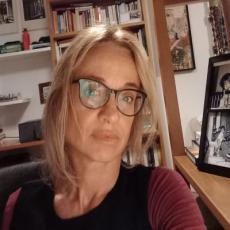Objectives
The course aims to offer to the students the conceptual and methodological tools for a critical knowledge of the past and its complex and changing relationships with the present time.
The general goal of the course is to transfer to the student the ability to problematize and contextualize, in a long-term framework, the analysis of the political-institutional, social and cultural processes of the contemporary age, stimulating a constant and close comparison between the historical method and the disciplines that concur to widen its visual angle and to enrich its analytical-conceptual instrumentation: mainly the sciences of the social and cultural processes, political and juridical-institutional sciences, social psychology, political philosophy, anthropology, sciences of language.
A more specific objective of the course is to provide students, within the framework of the more general knowledge and the multidisciplinary vision described above, an adequate basic knowledge of the history of information systems and of the cultural industry in the age of the 'public' and 'global networks', with particular attention to the political, social and cultural dimension of the relationship between communication and power.
At the end of the learning process the student will have to demonstrate knowledge and ability to understand history as a study of long-term change, in order to develop adequate and discerning skills in the analysis of social, political and cultural contexts, to raise awareness look at the diversity of the points of view on social reality, to develop a complex and problematic approach to the increasingly global and interconnected society of our time.
The student will then have to demonstrate his ability to face complex issues in the field of contemporary history, mainly in its international, political-institutional, socio-cultural dimensions, and, more specifically, in the social history of the media and the relationship between power and communication, with the support of advanced textbooks, seminar meetings, multimedia resources.
The student must also demonstrate that he is able to apply the acquired knowledge in a competent and reflective way, both to conceive and support arguments, and to solve problems in his field of study. It will therefore have to show itself capable of gathering and systematizing data, as well as selecting, cross-checking and analyzing information sources, organizing them in a congruent manner, establishing links and logical links to support his own reasoning skills and a more mature individual critical sense.
The study of contemporary history is consequently indispensable also in order to acquire, in line with the educational objectives of the degree course in Public and business communication, both general and specific communication and expressive abilities, in the face of the student's more general need to be endowed with that cultural sensitivity essential to dialectical confrontation, to relational activity in public and private organizations and institutions, in problem solving activities.
Channels
1
 ANDREA GUISO Teacher profile
ANDREA GUISO Teacher profile
Programme
1. The Apocalypse of modernity: the Great War in the history of the contemporary age
2. Liberal Globalizations and Red Globalizations
3. After the Victory. The (failed) try to build a new international order.
4. The enigma of democracy.
5. Global crisis: politics and economy after 1929
5. The new order of empires and the struggle for world hegemony
6. The Second World War
7. Bretton Woods and the birth of multilateralism: globalization at the service of national policies
8. The divided world: the international system of the Cold War
9. Europeanism and European integration
10. The processes of decolonization and the theme of development
11. The society of opulence and its protesters
12. The age of fracture and the "shock of the global" (1970s)
13. Second Cold War and new trends in international relations
14. The neoliberal project of government: the eighties in historical perspective
15. The collapse of communism and its global consequences
16. The illusion of the end of history and the difficult search for a new international order
17. The Europe of Maastricht
18. Beyond the West. The new geopolitics of the XXI century
19. September 11, 2001
20. Subprime. The crisis of global finance and its systemic consequences
21. United States and China: the new (financial) balance of terror.
22. Postpolitics and postdemocracy.
Adopted texts
Raffaele Romanelli, Novecento, il Mulino
Articles selected by the teacher
Prerequisites
It doesn't require formal prerequisites
Exam modes
Oral examination
| Exam reservation date start | Exam reservation date end | Exam date |
|---|---|---|
| 12/01/2022 | 23/01/2022 | 25/01/2022 |
| 12/01/2022 | 23/01/2022 | 25/01/2022 |
| 26/01/2022 | 06/02/2022 | 08/02/2022 |
| 26/01/2022 | 06/02/2022 | 08/02/2022 |
| 01/03/2022 | 05/04/2022 | 12/04/2022 |
| 01/03/2022 | 05/04/2022 | 12/04/2022 |
| 20/05/2022 | 03/06/2022 | 08/06/2022 |
| 20/05/2022 | 03/06/2022 | 08/06/2022 |
| 09/06/2022 | 18/06/2022 | 22/06/2022 |
| 09/06/2022 | 18/06/2022 | 22/06/2022 |
| 23/06/2022 | 07/07/2022 | 13/07/2022 |
| 23/06/2022 | 07/07/2022 | 13/07/2022 |
| 18/07/2022 | 07/09/2022 | 14/09/2022 |
| 18/07/2022 | 07/09/2022 | 14/09/2022 |
| 28/09/2022 | 03/11/2022 | 09/11/2022 |
| 28/09/2022 | 03/11/2022 | 09/11/2022 |
| 10/11/2022 | 03/01/2023 | 10/01/2023 |
| 10/11/2022 | 03/01/2023 | 10/01/2023 |
 Simona Colarizi Teacher profile
Simona Colarizi Teacher profile
2
 ELENA PAPADIA Teacher profile
ELENA PAPADIA Teacher profile
Programme
The revolutions of the late eighteenth century. Two political cultures: liberalism and democracy in the XIXth century.1848 in Italy and Europe. The democratic caesarism of Napoleon III. State-builiding, nation-building: the Italian and German cases. Socialism: Marx, Bakunin, the I and II International. The Italian case, from I International to PSI. Empires. World War I. The new hegemonic role of the United States. Building a mass consumer society. New Deal. The Bolshevik revolution and the birth of the USSR. Europe between two wars. The advent of fascism and the construction of the regime. Nazism. Stalinism. World War II. The structure of Europe in the post-war period. The cold war. Decolonization. The Italian case: from the second post-war period to the economic boom. New subjects, new rights: women and Afro-Americans. Italy in the Sixties. The Seventies in Italy and Europe. Perestroika. Reagan, Thatcher and the neoliberal phase. The Craxi years. The end of a world: 1989-1991.
Adopted texts
BIBLIOGRAFIA PER FREQUENTANTI
Obbligatori per tutti:
- M. Baioni, F. Conti (acd), La politica nell'età contemporanea. I nuovi indirizzi della ricerca storica, Carocci 2017
- A. Giovagnoli, La repubblica degli italiani, Laterza;
Più un libro a scelta, compreso in questa lista:
- E. Gentile, Le religioni della politica. Fra democrazie e totalitarismi, Laterza
- P. Macry, Storie di fuoco. Patrioti, militanti, terroristi, il Mulino 2021;
- E. Papadia, La forza dei sentimenti. Anarchici e socialisti in Italia (1870-1900), il Mulino 2019;
- E. Scarpellini, L'Italia dei consumi. Dalla belle époque al nuovo millennio, Laterza
- A. Sangiovanni, Le parole e le figure. Storia dei media in Italia dall'età liberale alla seconda guerra mondiale, Donzelli 2012
- D. Garofalo, Storia sociale della televisione in Italia (1954-1969), Marsilio
BIBLIOGRAFIA PER NON FREQUENTANTI
Il manuale, il cui studio è obbligatorio per tutti, è uno a scelta tra:
- G. Sabbatucci, V. Vidotto, "Il mondo contemporaneo. Dal 1848 a oggi", Laterza
- T. Detti, G. Gozzini, Storia contemporanea. Vol. I, L'Ottocento; vol. II, Il Novecento (fino al capitolo 18 compreso);
- S. Lupo, A. Ventrone, L'età contemporanea, Le Monnier 2016.
Al manuale dovrà essere affiancato lo studio di un libro a scelta, compreso in questa lista:
- E. Gentile, Le religioni della politica. Fra democrazie e totalitarismi, Laterza
- P. Macry, Storie di fuoco. Patrioti, militanti, terroristi, il Mulino 2021;
- E. Papadia, La forza dei sentimenti. Anarchici e socialisti in Italia (1870-1900), il Mulino 2019;
- E. Scarpellini, L'Italia dei consumi. Dalla belle époque al nuovo millennio, Laterza
- A. Sangiovanni, Le parole e le figure. Storia dei media in Italia dall'età liberale alla seconda guerra mondiale, Donzelli 2012
- D. Garofalo, Storia sociale della televisione in Italia (1954-1969), Marsilio
- A. Giovagnoli, La repubblica degli italiani, Laterza
Bibliography
vedi sopra
Prerequisites
Not required.
Frequency modes
Class attendance is optional.
Exam modes
The exam will consist of a two-hour written test. Since the test is divided into open questions, the students will be evalueted not only for the knowledge acquired, but also for their linguistic skills.
| Exam reservation date start | Exam reservation date end | Exam date |
|---|---|---|
| 27/10/2021 | 31/01/2022 | 09/02/2022 |
| 17/02/2022 | 05/04/2022 | 12/04/2022 |
| 27/10/2021 | 28/05/2022 | 07/06/2022 |
| 27/10/2021 | 12/06/2022 | 22/06/2022 |
| 27/10/2021 | 07/07/2022 | 14/07/2022 |
| 27/10/2021 | 04/09/2022 | 14/09/2022 |
| 25/08/2022 | 26/10/2022 | 03/11/2022 |
| 10/11/2022 | 06/01/2023 | 13/01/2023 |
| 10/11/2022 | 19/01/2023 | 25/01/2023 |
 CHIARA ZAMPIERI Teacher profile
CHIARA ZAMPIERI Teacher profile
Programme
The end of the Second World War in Italy, the Resistance, the transition from Fascism to the Republic. The structure of Europe and Italy after World War II. The Cold war. The Italian case: from the second post-war period to the economic boom. "Centrism" and De Gasperi governments. The detente. Italy in the Sixties. Openness to the left, center-left governments and the 1968 movement. The 1970s in Italy and Europe. Italian terrorisms. Governments of national solidarity. Perestroika. Reagan, Thatcher and the neoliberal phase. The globalization. Craxi's years. The end of a world: 1989-1991. The end of the "first Republic".
Adopted texts
BIBLIOGRAFIA PER FREQUENTANTI
Obbligatori per tutti:
- A. Giovagnoli, La repubblica degli italiani, Laterza;
Più un libro a scelta, compreso in questa lista:
- E. Gentile, Le religioni della politica. Fra democrazie e totalitarismi, Laterza
- P. Macry, Storie di fuoco. Patrioti, militanti, terroristi, il Mulino 2021;
- E. Papadia, La forza dei sentimenti. Anarchici e socialisti in Italia (1870-1900), il Mulino 2019;
- E. Scarpellini, L'Italia dei consumi. Dalla belle époque al nuovo millennio, Laterza
- A. Sangiovanni, Le parole e le figure. Storia dei media in Italia dall'età liberale alla seconda guerra mondiale, Donzelli 2012
- D. Garofalo, Storia sociale della televisione in Italia (1954-1969), Marsilio
BIBLIOGRAFIA PER NON FREQUENTANTI
Il manuale, il cui studio è obbligatorio per tutti, è uno a scelta tra:
- G. Sabbatucci, V. Vidotto, "Il mondo contemporaneo. Dal 1848 a oggi", Laterza
- T. Detti, G. Gozzini, Storia contemporanea. Vol. I, L'Ottocento; vol. II, Il Novecento (fino al capitolo 18 compreso);
- S. Lupo, A. Ventrone, L'età contemporanea, Le Monnier 2016.
Al manuale dovrà essere affiancato lo studio di un libro a scelta, compreso in questa lista:
- E. Gentile, Le religioni della politica. Fra democrazie e totalitarismi, Laterza
- P. Macry, Storie di fuoco. Patrioti, militanti, terroristi, il Mulino 2021;
- E. Papadia, La forza dei sentimenti. Anarchici e socialisti in Italia (1870-1900), il Mulino 2019;
- E. Scarpellini, L'Italia dei consumi. Dalla belle époque al nuovo millennio, Laterza
- A. Sangiovanni, Le parole e le figure. Storia dei media in Italia dall'età liberale alla seconda guerra mondiale, Donzelli 2012
- D. Garofalo, Storia sociale della televisione in Italia (1954-1969), Marsilio
- A. Giovagnoli, La repubblica degli italiani, Laterza
Prerequisites
Not required.
Exam modes
Essays
- Academic year: 2021/2022
- Curriculum: Curriculum unico
- Year: First year
- Semester: Second semester
- SSD: M-STO/04
- CFU: 9
- Attività formative di base
- Ambito disciplinare: Discipline sociali e mediologiche
- Lecture (Hours): 72
- CFU: 9.00
- SSD: M-STO/04
